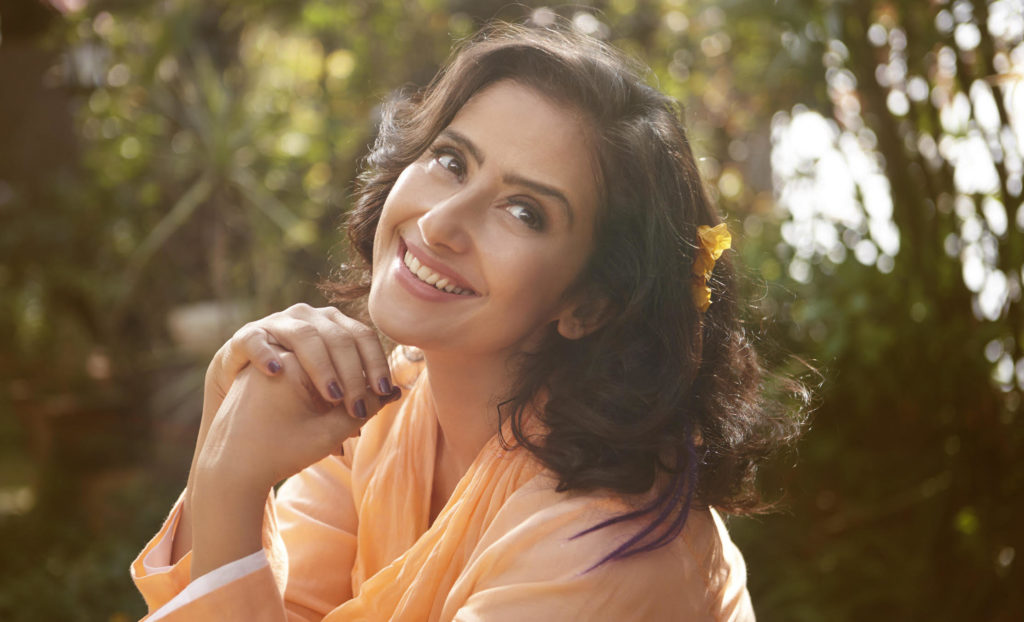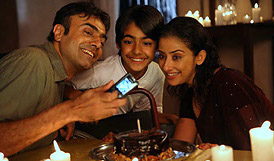Manisha Koirala – ”˜Healed’ for a cause

By Neeru Saluja
Actress Manisha Koirala’s life has always been a rollercoaster. A starry launch, a successful career, heartbreaks and a life threatening disease. The ride was bumpy, but it never broke her spirit. She emerged as a fighter and survived the deadly disease of ovarian cancer.
The actress who won our hearts with her films Dil Se, Bombay, Agni Sakshi, Saudagar, Khamoshi, Lajja and most recently Sanju and Do Paise Ki Dhoop, is now unveiling her battle via her memoir ”˜Healed ”“ How Cancer Gave me a New Life’.
As she is gearing up for her visit to Adelaide for the Jaipur Literature Festival, we engaged her in a candid conversation where she opened her heart how cancer has changed her as a person and an actress and what Bollywood means to her.
Australia is eagerly waiting to welcome you with open arms. For the Jaipur Literature Festival, you have a session ”˜Healing’. Will this revolve around your book or will you also talk about your Bollywood career?
I will be presenting my book ”˜Healed’ to the audience at the Jaipur Literature Festival. The talk will evolve around the content of the book. I shall also talk about my Bollywood career and what cancer has taught me. Though I have visited Australia many times, this is my first visit to Adelaide and I’m looking forward to it.
You have often mentioned that cancer has changed you. How has it created a new chapter in your life?
Cancer has given me a new eye to look at life. When I realised that I was losing my life and could be dead due to my cancer diagnosis, I started evaluating everything and started visiting my previous values and situations. I realised that how important it was to be grateful to life. But to enjoy this life, we need to be in good health. I then started further dissecting life and my talk will be around this.
As a Bollywood actor and writer, you have a platform where you can educate people about cancer. Do you think that there is still a stigma associated with it in India?
It’s changing. It takes a few people to stand up and talk about their story. When we shy away from expressing, fear and ignorance takes over and it becomes a social taboo. If one person stands up and talks about it and the other person joins in, you realise that it is a dreaded disease but there is hope. Many people don’t even go for treatment as they think cancer means death. My mission in life is to give hope to people and not hide away the trauma I went through. Honestly, every time I speak about my experience I have tears and break down. Even though it is hurtful and painful, I must speak. When I saw certain sportsperson (Yuvraj Singh) or celebrities (Kylie Minogue) talking about it, it gave me encouragement and made me sail through my difficult times. When you see someone else winning over it, you get hope.
After your battle, you made a comeback to Bollywood and films on Netflix. As Nargis in Sanju, you had an uncanny resemblance to her, but did it make you emotional as she died of cancer?
When I was performing I had that strong feeling in my stomach pit, as I knew what she was going through. I was lucky as I got a second chance to life and Bollywood welcomed me back with open arms. I get to travel thanks to my book. I recently went to the Everest base camp. I am enjoying life and taking upon tough challenges. I am getting into my 50s and enjoying my life and health because today I am aware of the value of life.
Do you miss the glitz and glamour of Bollywood?
When you start having the bird’s eye view instead of the worm’s eye view, you see life in totality. Glitz and glamour have a space in my life, but it is not everything for me. To me actually what I truly love about my work is self-expression. If my creativity and art gets approved by the audience, for me that is the greatest high. Glitz and glamour are the branches of a tree but not the trunk of the tree.
How would you define your Bollywood journey and your favourite roles?
I have never been someone who has been calculative or manipulative and neither was I ambitious. I was really lucky that good directors thought I was capable and they took me on board. I kept on getting good roles and with the grace of God, I worked hard. It was a joyful process for me. I have done 80+ movies and out of them I can say maybe 10 are my favourites. To name a few, Lajja, Akele Hum Akele Tum, Khamoshi, Agnisakshi, Bombay, Saudagar and Do Paise ki Dhoop are my favourites.
In most of your films your character has been complex but you have unravelled the simplicity via your expressions and acting. What is the process involved with this preparation?

The preparation part of the character is fun part of the process as you work with the director and writer to bring out the smallest of the details of the character whether it is the body language, appearance, expression, the pitch of the voice or the mental state. For example, in Do Paise ki Dhoop I had long nails but they were unkempt, her lips were charred, her hair was untidy. She didn’t have enough time to look after herself. Her house was messy, her physically challenged son was demanding. She was basically harrowed with life. She has aged with life, has been unloved and that’s why her pitch is always high.
As an artist, we work with the director and put together all the details. We rehearse many times. Preparation is where we put all the pieces together of a puzzle. When I did ”˜Lust Stories’, we worked on the look and when she confronts her husband she goes to the bathroom and takes off her make-up. It was an indication of her confession and coming clean to him to say this is it.
What would you call your strengths as an actor?
I love my work. I have always had lots of fun on sets. Even if I’m working long hours, I enjoy it. Though I have to be careful of not working too long as I’m an ex-cancer patient. Also, I would like to acknowledge that we should not only be recognised for the success of a film as behind the scenes there are a lot of people who work hard.
Looking back, is there anything you would have done different 20 years ago?
There are two thoughts that go along side with me. One is that if I had not fallen flat on my face, I would not have picked myself up. I don’t want to change anything. Everything that has happened has occurred because it had to happen. There are regrets, but I am always ready to learn lessons. When you are young, you do your mistakes. Today I am wiser and will listen to my elders more
Short URL: https://indiandownunder.com.au/?p=14404
